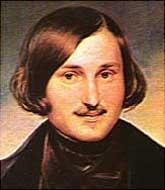 Somehow I had missed reading this book all these years, and finally finished it on Wednesday. I can understand why the story has had such staying power – memorable characters set against the French revolution. The plot lines involve all sorts of links and coincidences among a group of folks, and sometimes this felt a bit forced. I think the story would have worked fine without all the links; for example, Madame DeFarge with her knitting would have been a great character without the link that is revealed in the last part of the book. The Sydney Carton stuff at the end is quite nicely done. It’s all nice, though more melodramatic than would be acceptable today.
Somehow I had missed reading this book all these years, and finally finished it on Wednesday. I can understand why the story has had such staying power – memorable characters set against the French revolution. The plot lines involve all sorts of links and coincidences among a group of folks, and sometimes this felt a bit forced. I think the story would have worked fine without all the links; for example, Madame DeFarge with her knitting would have been a great character without the link that is revealed in the last part of the book. The Sydney Carton stuff at the end is quite nicely done. It’s all nice, though more melodramatic than would be acceptable today.Dickens does a great job communicating the atmosphere in France in the days of the Terror (at least as someone who wasn’t there writing for readers who weren’t there either). He describes some of the perks enjoyed by the nobility over the years at the expense of the peasantry in a way that explains some of the ensuing butchery on a more visceral level. Details about the story are here.
I didn’t really appreciate how popular Dickens was, and is. Read this for more.
